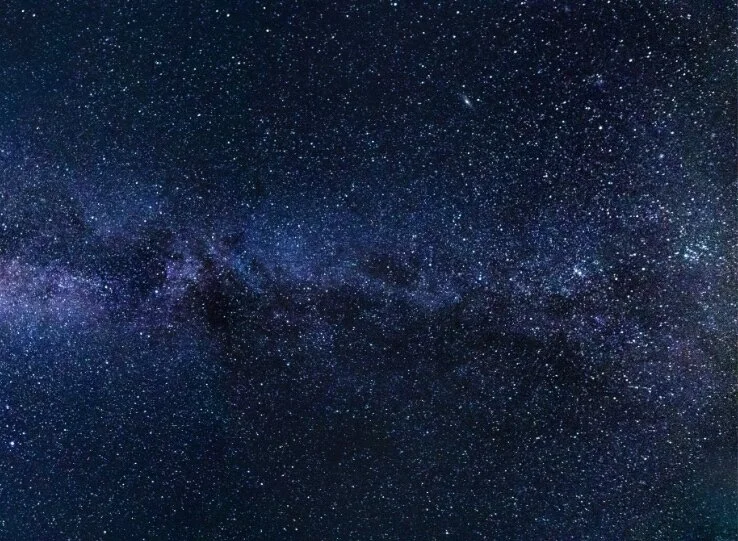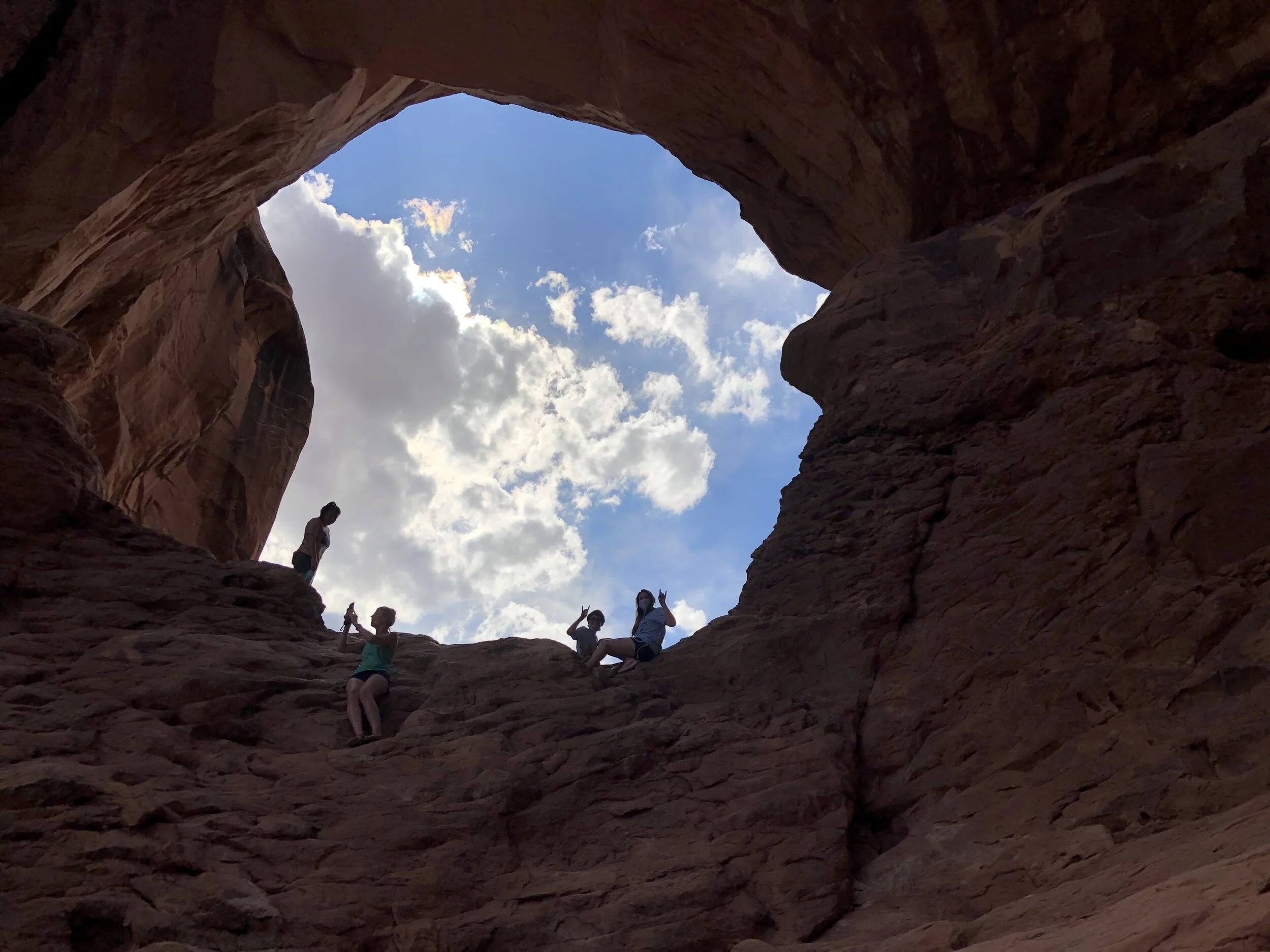Elevating Darkness (Rev. Dan De Leon)
On the evening of August 20, 2020, former Vice President Joe Biden formally gave an acceptance speech upon officially receiving the nomination of his party to be its candidate for the presidency. The next morning I typed up a few thoughts and shared them on Facebook about the juxtaposition of the words ‘dark’ and ‘light’ in the speech. It received a modest amount of traffic. The responses were a mix of gratitude and pushback, peppered with concerns from some who might cast the same vote as I would, warning against any criticism of the democratic nominee possibly contributing to divisions that could lead to his defeat. While I would argue that such pearl clutching is a symptom of the white supremacy that is so baked into the ethos of our American culture that we are all complicit to it—supremacy that maintains its dominance by suppressing any challenges to passively accepted norms—that is not the main reason for sharing that post here. In this publication of “Reframing Darkness,” I offer those reflections on now President Elect Joe Biden’s four-month-old speech to contribute to the conversation that elevates darkness, and that calls on us to reframe it in a way that does justice to the Creation we all share that began in the beautiful, promising dark. Here’s the post…
====================
image: Thomas Hawk, Creative Commons
Let me start by saying that, overall, I was tremendously impressed and even inspired by Joe Biden’s speech last night. But this post isn’t meant to critique his candidacy one way or the other; rather, to point out some of the words his speechwriters and he chose to include in that speech that, I feel, continue to reinforce racism and white supremacy.
At first I was amazed that Biden started perhaps the biggest speech of his life by quoting Ella Baker, the Black human rights activist. When I heard that, the look on my face was probably like the one on Samuel L. Jackson’s character Jules’ face in Pulp Fiction when he asks the person he’s interrogating, “You know what they call a quarter pounder with cheese in France?…Royale with cheese. You know why they call it that?” and the kid responds, “Uh, because of the metric system?” surprising Jules, who declares, “Check out the big brain on Brad!”
But then Biden proceeded to say, “I will be an ally of the light, not the darkness,” and brought home that message of light over dark; the implication being that darkness is an existential threat to the good of humanity. It’s a binary that’s baked into our conscious and subconscious thinking that light (white) is good, and dark (black) is bad, and it implicitly (overtly) others BIPOC (Black, Indigenous, and People of Color).
Getting back to Biden’s speech, I would agreeably assert that we are in times that are so bad that the word ‘bad’ alone doesn’t cut it. But that’s when it’s so easy, so tempting to use the verbiage to help us understand the depths of badness that has been articulated to us in everything from the Bible to popular poetry to Star Wars: dark. Put simply, there are other ways to express the depths of badness or the extent of evil without calling them dark. I think of my elders, teachers, and mentors teaching me about cussing where they didn’t just say, “Don’t cuss;” they said, “Cussing is lazy. Find better words, more mature words to express what’s on your heart and mind.” (Note: I still cuss, but God is not through with me yet.) To be clear, the words 'dark’ and ‘darkness’ are not inherently bad words, but in the context of Biden’s speech and the contrast between light and dark in our language, it is troublesome at the least, and violent toward BIPOC at the most.
Now, instead of rolling your eyes with a simplistic response that buys into the false notion of “cancel culture” in this regard and thinking that if we stop saying that “things are pretty dark” that we can’t ever watch Star Wars again, just try to find other ways of expressing that things are really bad. Remember, it’s not about you; it’s about blindly accepted language that oppresses Black people by implying (overtly saying) that the color of their skin, their identity, their personhood is bad.
In the denomination that I serve, the United Church of Christ, we have a hymnal (The New Century Hymnal) that’s been in print since 1995. It’s a collection of traditional/older and contemporary/newer hymns, but throughout, the editors of the NCH are intentional about language. Sure, the Baptist-reared choirboy in me can’t stand the omission of poetic words like ‘thou’ and ‘thee,’ but I appreciate how ‘dark’ and ‘darkness’ are revisited when placed in the context of badness, and then replaced with alternative words or phrases. For example, in one of my favorite hymns, “Joyful, Joyful, We Adore Thee (You),” there is a stanza that is altered from “melt the clouds of sin and sadness…drive the dark of doubt away,” to “drive the storms of doubt away.” Perfect? Maybe not. But faithful to the love of neighbor as we love ourselves? Absolutely.
Another example is in the words we choose for prayers. Instead of saying something about being delivered from darkness into light, say something like, “O God, as we seek a way out of these days of brokenness and despair (notice I didn’t say “days of darkness”), we pray that you would deliver us from the current shadows into your marvelous light.” The possibilities are endless and ultimately liberating.
So, if we want to lean into the spirit of Biden’s speech about being good allies, let’s be allies to the light, and not to the shadows of corruption and iniquity cast over us all. If Black is beautiful, which it most certainly is, then darkness isn’t inherently bad. In fact, from the warmth of a dark womb to the mystery of a dark night, darkness is good and beautiful beyond human words.
================
Here endeth the post. If I can offer any hindsight reflections about those thoughts, they are simply this: the poetic language we revere, from our hymns and songs to our liturgies and prayers, tell the world—one another and the generations we raise—how we feel in the depth of our being; what we hold to be true and just and sacred. When that language consistently and sometimes more overtly than subtly articulates that darkness is an evil to be feared, it informs a cultural narrative that is consequently projected onto our neighbors whose skin has been kissed by nature’s sun, as Rev. Dr. Otis Moss III of Trinity United Church of Christ, Chicago, puts it. This is what is meant by the presumptuous criminalization of darker skin colors. But the thing is that every human being, across the spectrum of our skin hues and tones, breathes the same air that is provided and fostered by the earth and all that is in it, all of which belong to God, according to the psalmist. Honoring one another with neighborly love that dispenses with naive notions of darkness being bad, in turn, honors God. And to honor God, we would do well to start from the beginning to reframe our understanding of darkness…
image: John Snyder, Creative Commons
In the beginning when God created the heavens and the earth, the earth was a formless void and darkness covered the face of the deep, while a wind from God swept over the face of the waters. Then God said, ‘Let there be light’; and there was light. And God saw that the light was good; and God separated the light from the darkness. God called the light Day, and the darkness he called Night. And there was evening and there was morning, the first day. —Genesis 1:1-5, NRSV
Notice that while God called the light “good,” God did not inversely call the dark “bad.” And proceeding through the Creation story, God calls everything that comes out of that womb of darkness that covered the face of the deep “good.” Perhaps we might reframe darkness by thinking of it as a womb from which all matter of good things are born into being. The dark is not something to be feared, in this respect, let alone demonized. The dark is something to be appreciated as essential to the symbiotic nature of this Creation that we share, that we’re called to care for alongside one another, and that is altogether good.
++++++++++
Rev. Dr. Dan De Leon, Senior Pastor, Friends Congregational Church, United Church of Christ, College Station, TX
Dan De Leon, he/him/his, has served the pastorate of Friend Church for 15 years. His leadership, characterized by intentional inclusiveness and the pursuit of social justice, has fostered the identity of the congregation as a Gospel-rooted community, loving God, loving people, and loving creation. Whether he is preaching or teaching, at the coffee shop listening, in the public square marching, in the sanctuary strumming six-string, at a laptop zooming, or at a table breaking bread and pouring the cup, Dr. De Leon leads by demonstrating that it’s more than okay to be human; it’s altogether good. He holds a B.J. in Public Relations from the University of Texas at Austin, as well as a M.Div. and D.Min. from Brite Divinity School at Texas Christian University. Find him on Facebook and Twitter at @RevDanDeLeon.








